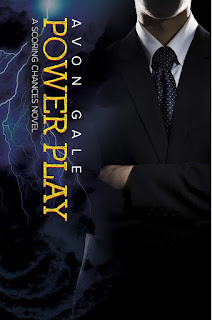 |
| This novel uses decent erotica. |
Truthfully, however, good erotica is not only part of the story, it is the story. That is, the story is as much about the sexual relationship as it is about the spiritual and emotional relationship. Consequently, "being integral to the story" doesn't automatically make the erotica good since a stupid story will by default have stupid erotica.It has to be said, however, even when the story is good, the description associated with erotica can still be less than good. The most consistent difference between well-written erotica and poorly written erotica in fiction is subjectivity versus objectivity.
Despite my usual deference to empiricism, I have to state here: in this case, subjectivity is better.
That is, the most erotic erotica occurs when the reader is caught inside a character's head. What the character experiences is dictated by the moment, the character's personality, the character's awareness, the character's terminology.
The least erotic erotica, oddly enough, is almost obsessively explicit. The narration moves away from the characters to something that resembles a process article. One suspects the writer of borrowing heavily from Roget's Anatomy Thesaurus. Or attending a creative writing class whose teacher likes to emphasize the importance of detail! Really? In this particular moment? Really!?
 In fact, poorly written erotica can go on so long with so much obsessive detail the reader starts flipping pages--or swiping the screen. This is not due to some weird moral equivocating: It's a good story so long as I skip the dirty parts! The swiping ensues because the description is actually boring.
In fact, poorly written erotica can go on so long with so much obsessive detail the reader starts flipping pages--or swiping the screen. This is not due to some weird moral equivocating: It's a good story so long as I skip the dirty parts! The swiping ensues because the description is actually boring.It all reminds me of the scene in Frasier, Season 2, "Slow Tango in South Seattle." Frasier spends part of the episode reading a book clearly based on Bridges of Madison County. Not exactly erotica, the book obviously falls more into the Nicholas Sparks/Richard P. Evans category. But the application to erotica is hilariously similar:
Scene Two - Frasier's Apartment - Night Frasier is seated in his wing-back leather chair upstage. He is reading a copy of Slow Tango In South Seattle.
Frasier: [v.o:] "He had been a teenage Balboa, an explorer of the rising pinnacles and gently curving slopes of my body. Then in one explosive burst of discovery he had staked claim to the Pacific Ocean that was my soul. But now he was leaving, going, vanishing like a solitary boat on a lonely horizon. Departing like a train, rolling ceaselessly through the night. Exiting swiftly like..."
The voice-over stops and Frasier finishes the page.
He turns over a page.
Another page.
Several pages.
After many pages...
Frasier: [v.o:] "And so he was gone."Tip to Romance Writers: Let your readers' imaginations do part of the job. And let your characters be themselves, rather than the equivalent of Dr. Ruth.